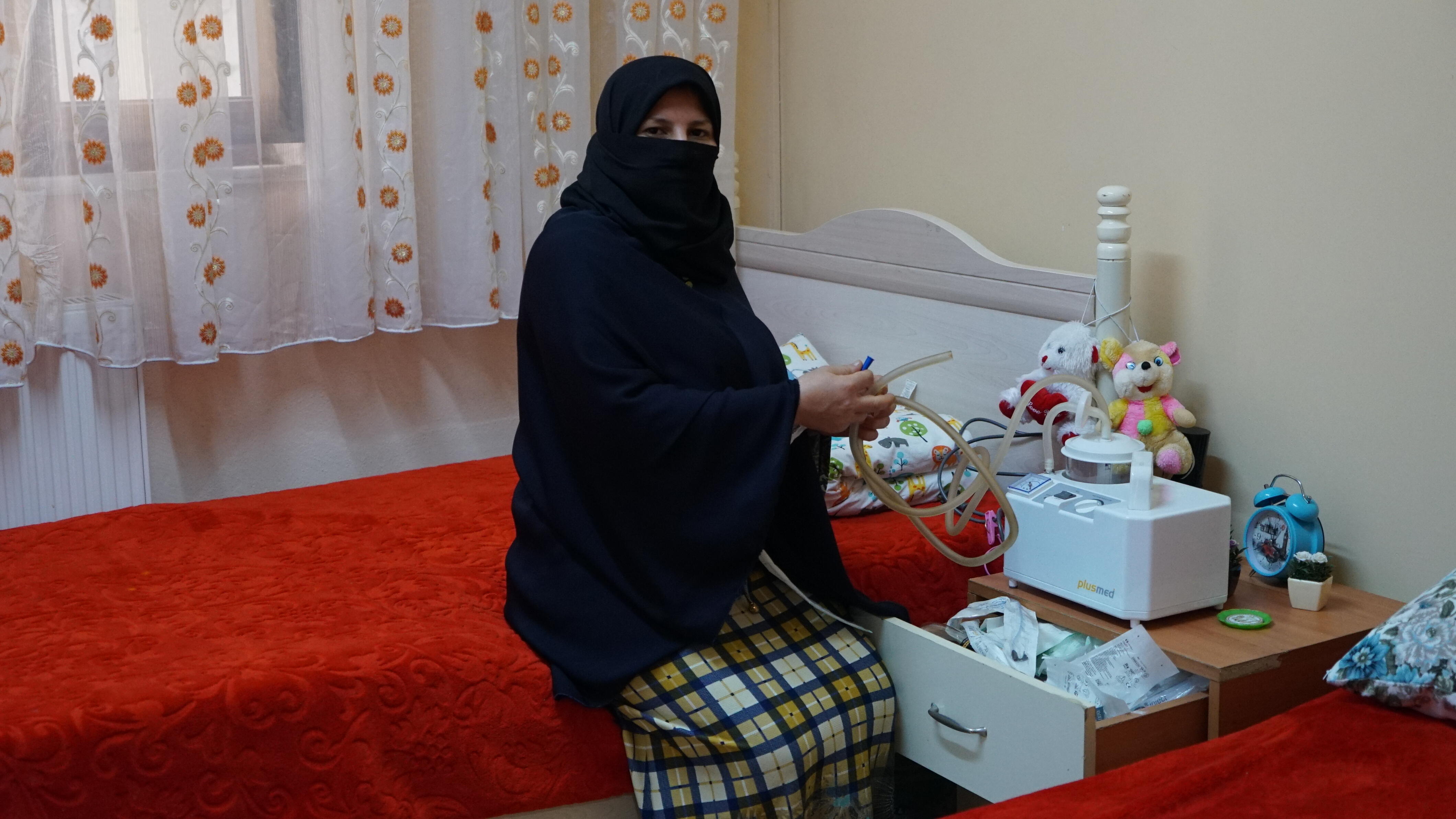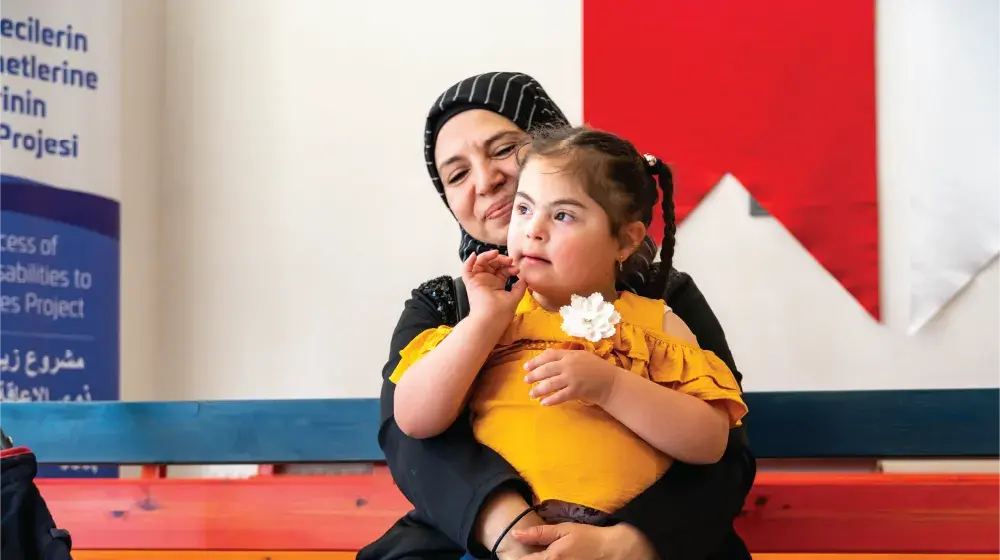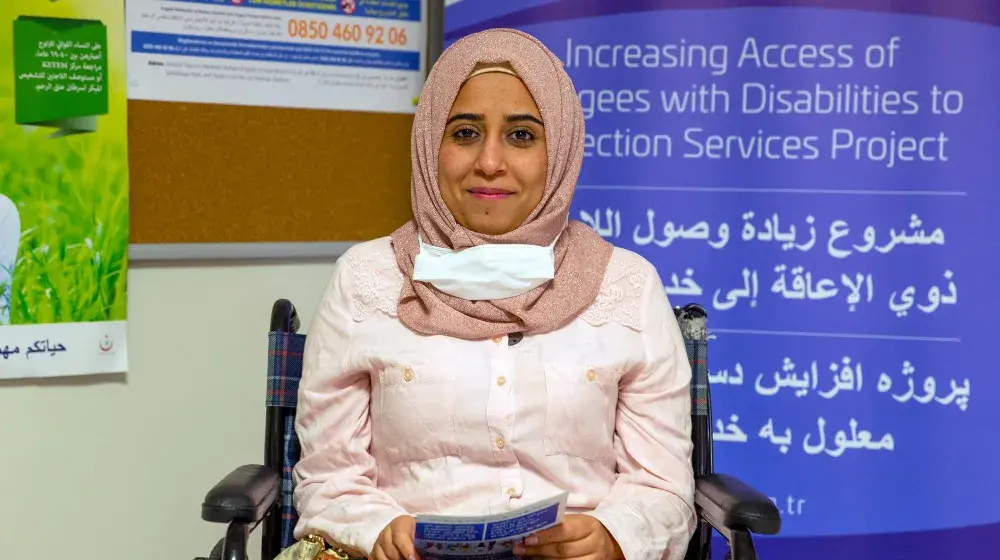Turkey has been hosting the largest number of refugees globally with close to 4 million refugees and asylum-seekers, including 3.6 million Syrians. Despite the efforts of state authorities and other stakeholders, main challenges for refugees remain due to the rapid increase in population and the resulting pressure on national resources. From health care to education, protection to legal services, refugees still face various obstacles. Betül is one of those Syrian refugees. Her daughter diagnosed a fatal disease and came through it with support of UNFPA and EU Humanitarian Aid.
BURSA, TURKEY - Betül describes her gratitude for UNFPA teams which helped her daughter to be back to life with the following words: “If you were not here, my daughter would be dead”.
Betül is one of 3.6 million refugees living in Turkey. She fled the war in Syria in 2013. The young woman arrived in Turkey all by herself and started to rebuild her life in İnegöl, Bursa. For a while, it looked like things had taken a turn for the better. Betül met her future husband, got married, and soon found out that she was expecting a daughter.
Five month after her birth, Betül’s daughter Aytin was diagnosed with Spinal muscular atrophy (SMA), a disease that progressively destroys nerve cells and spinal cord that control essential skeletal muscle activity such as speaking, walking and even breathing, leading to muscle weakness and atrophy. “We went to Migrant Health Center first and were told that we had to bring her to a hospital in Bursa. But we couldn’t get an appointment since my daughter did not have an ID card,” said Betül. A private hospital admitted them, but they could not afford the fees. That’s when their paths crossed with UNFPA’s mobile teams; “They said that they would help us. Then, they referred us to the İnegöl Social Services Center (SSC).”
The İnegöl Social Services Center is one of the 19 Social Services Centers established in different provinces of Turkey in the scope of UNFPA’s “Increasing Access of Most Vulnerable Groups to Protection and Social Services in Turkey” project with the financial support from EU Humanitarian Aid. The project aims to provide social services such as protection, legal counselling and psycho-social support to refugees, migrants and the most vulnerable groups.
UNFPA teams first helped Betül get Aytin’s ID card in scope of the protection services provided by the center. Then they accompanied them to hospital with an interpreter to get the immediate medical attention she needed free of charge. Aytin, who has severe breathing difficulty due to her SMA, got her first operation from her nose, which helped her breath again, along with the medical equipment and medications that were provided at the hospital.
“My daughter was very well taken care of at the hospital. When we had lost all of our hope, you lent your hand and helped us to get her ID card. If you had not supported us, my daughter would be dead” says Betül. UNFPA teams are now helping Betül’s husband to get his ID card.
SMA treatment is extremely expensive and means having tough times for both the patient and families. Now, Betül’s biggest dream is to be able to buy the machine that will help her daughter breathe better and stay healthy.
Thanks to the financial support of EU Humanitarian Aid, the “Increasing Access of Most Vulnerable Groups to Protection and Social Services in Turkey Project”, which is implemented by UNFPA Turkey in partnership with the Ministry of Family, Labour and Social Services, supports refugees and migrants like Betül through 19 social service units and 3 mobile service centers. SSCs provide protection services including information sharing, raising awareness, psycho-social support and legal counselling services as well as gender-based violence prevention and protection.




